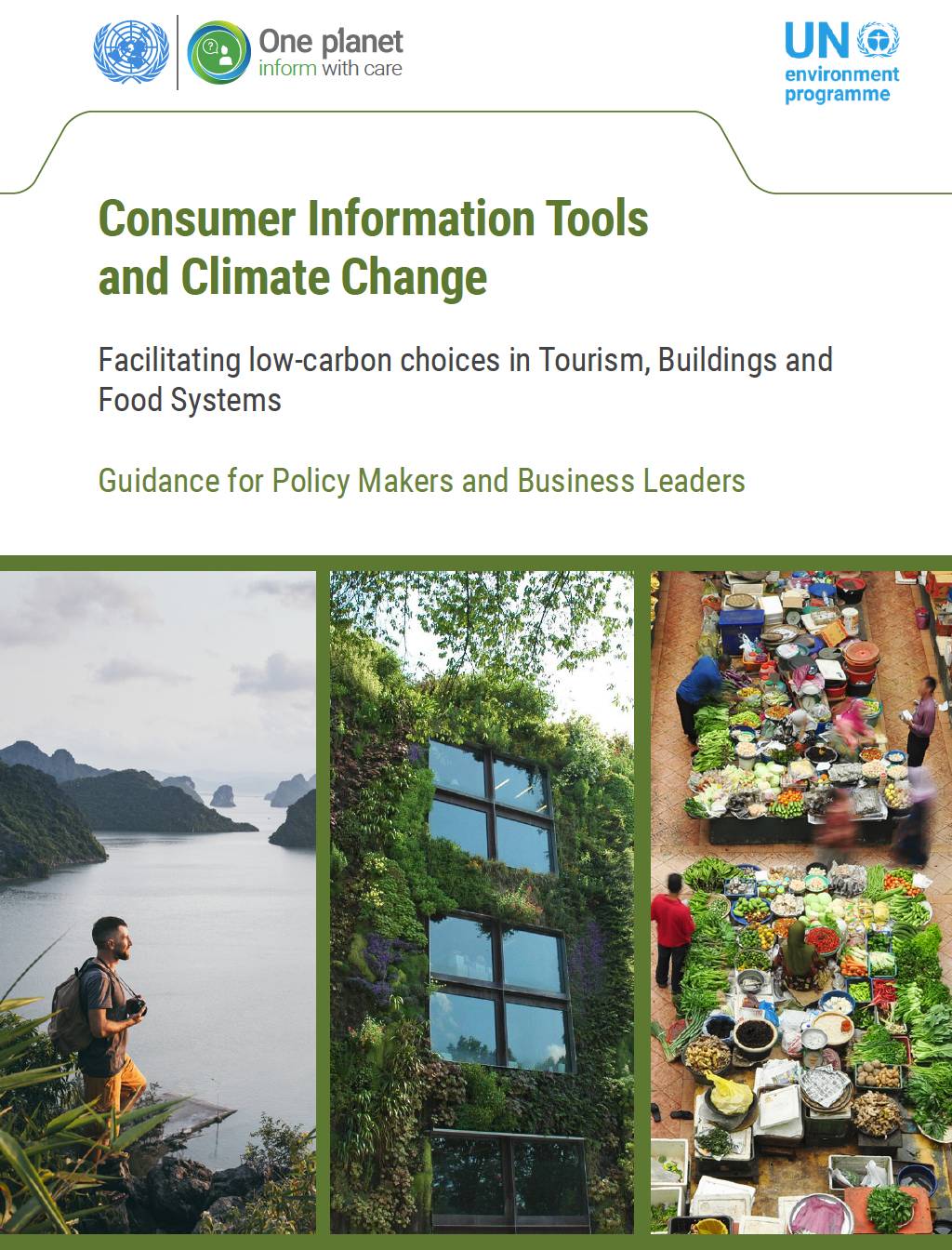
This report details how the use of consumer information tools can support greenhouse gas emission reductions in three industry sectors: tourism, buildings and food. Consumer information covers a range of tools and systems that seek to guide consumers to make more sustainable choices about goods and services (products), including in their use and end of life phase. Tools can take many forms, including certifications, voluntary standards, product declarations, ratings, marketing claims, foot printing, life-cycle assessments, product campaigns in store or on social media, and other ways of communicating with consumers on environmental and social issues connected to products (for instance through product design). They can be single- or multi-issue, and can follow a life cycle approach to provide a holistic perspective considering the impacts of every stage of the product development process, including how a product is used and how it is treated responsibly at end-of-life.
In this context, the report defines the climate change mitigation challenge for the tourism, buildings and food sectors within the framework of the Paris Agreement. It outlines the structure of the three sectors and details their supply chain specifics. The report then summarizes the state of the art on consumer behaviour, before it describes existing consumer information tools in each sector.
Barriers to and solutions for their more widespread use are discussed along with recommendations for business and policy makers. The report also contains a number of best practice cases. There is a growing insight that production-focused approaches to climate change mitigation will not be sufficient to stay within the 1.5°-2°C maximum warming guardrail. Voluntary action will be needed to support decarbonisation processes and to help countries meet their nationally determined contributions to emission reductions (NDCs).
Consumer information tools can be an important mechanism to scale up mitigation efforts and to increase widespread interest and understanding of climate change, its driving forces, and the role of consumption in generating greenhouses gases. Based on recommendations as made in the report, businesses and policy makers will be able to adapt workable strategies to widen the use of viable standards and certifications.


